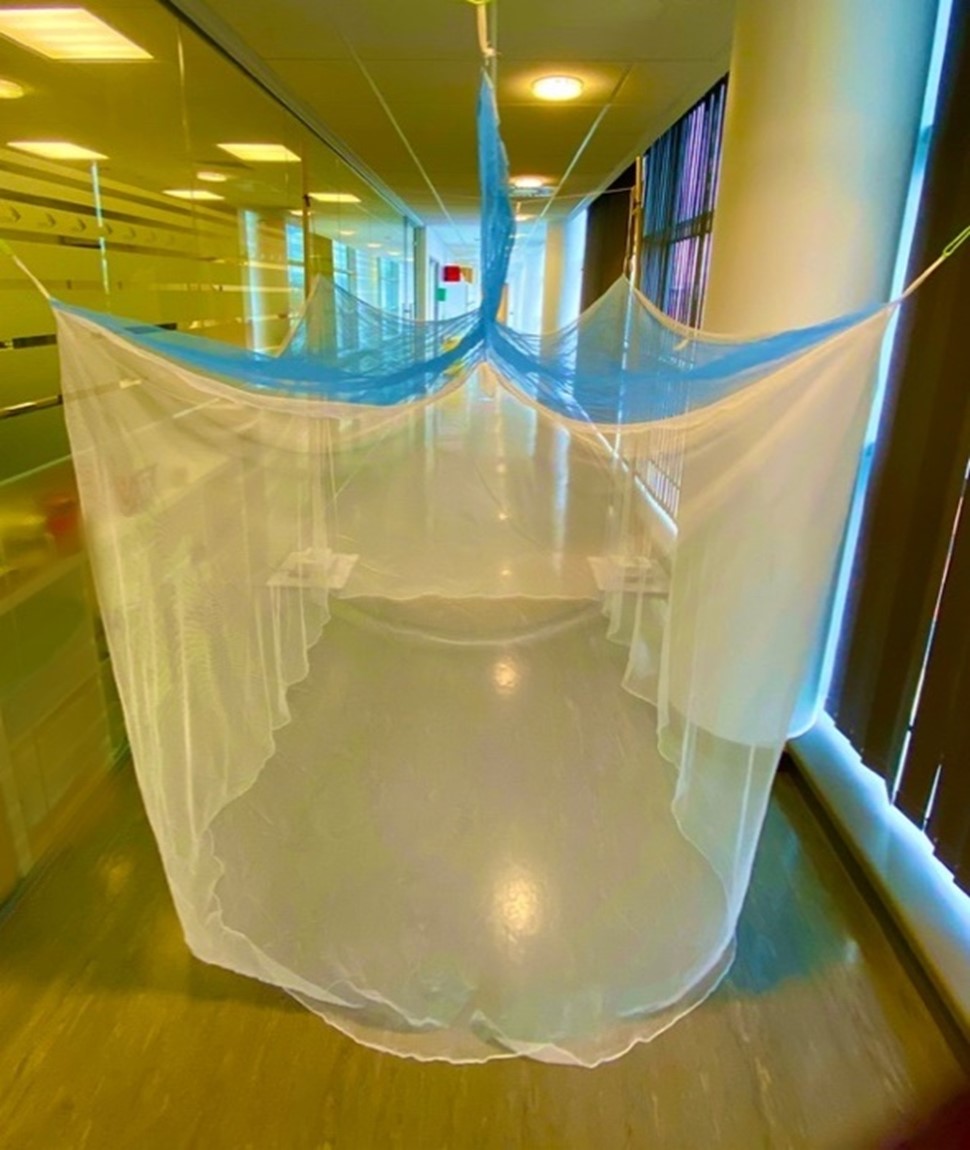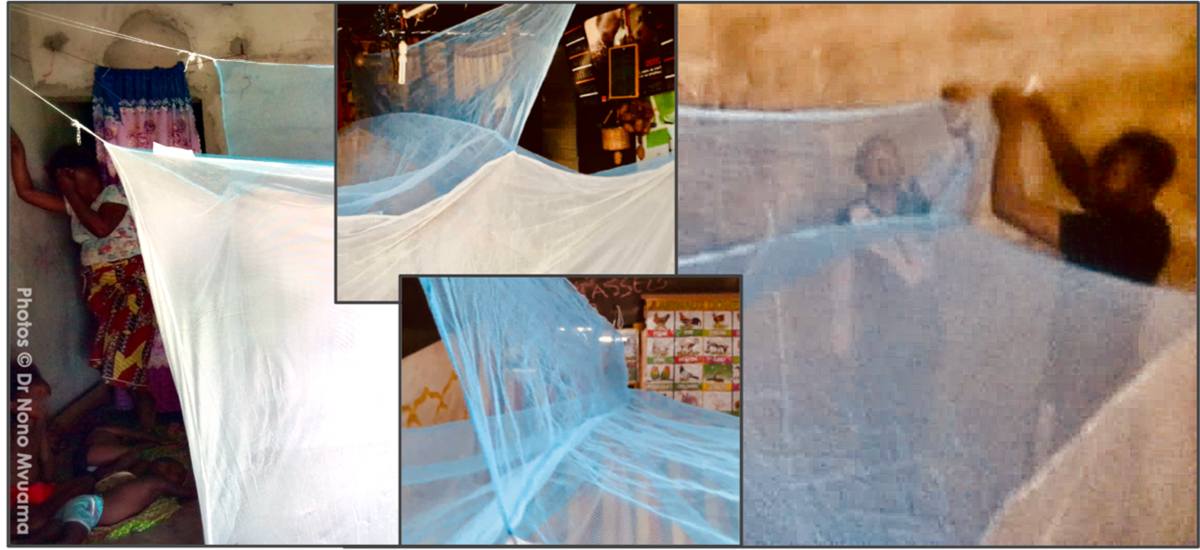I studied Biology (BSc UCC Ireland) and Animal Parasitology (MSc University of Wales) before my PhD investigating the vectors of bovine onchocerciasis in UK (Liverpool University/ Liverpool School of Tropical Medicine, 1987). I was awarded a Wellcome Trust Advanced Training Fellowship (1990-1995) and worked for a time with Ted Turlings and Jim Tumlinson on tritrophic interactions and host location by parasitic Hymenoptera at the Center for Medical, Agricultural & Veterinary Entomology (CMAVE) in Gainesville (Florida, USA). Prior to joining LSTM in 1998, my research was on the Simulium vectors of onchocerciasis in Africa, based in UK, the Netherlands (Wageningen) and Mali (with OCP, Onchocerciasis Control Programme).
Research
My main interest is in the behaviour of arthropod disease vectors, from characterisation of basic vector behaviour to understanding how those behaviours might change in response to insecticide challenge or shifts in host availability. Many gaps exist in our understanding of key behavioural events in the adult life of these mosquitoes and better knowledge, however simple, has the potential to guide efforts to refine and improve the performance of existing approaches.
Research aims are often defined or refined by the activities and outputs of the other teams working in the department on closely-related topics, as illustrated in this video, where we have tried to present the culmination of work carried out in this department over twenty years or so, by many more people than those speaking in this seminar.
My current active work includes studies on movement and resting behaviours of Anopheles gambiae and Aedes aegypti within the peri-domestic environment, the development of testing protocols for evaluating bednets and the development of novel control tools for both of these vector types.
Peridomestic behaviour of African malaria vectors and the impact of insecticides
The most effective and widely used malaria vector control measures use insecticides to target mosquitoes within the human home, yet little is known about vector behaviour in this environment. We use infra-red video technology in the field and laboratory, to track African malaria vectors of the Anopheles gambiae and An. funestus species complexes during host location and as they attempt to bloodfeed on humans protected within ITNs.
We are exploring how that behaviour might change following introduction of insecticide-based control methods, focusing primarily on insecticide-treated nets (ITNs) for the anophelines and insecticide residual spraying (IRS or Targeted IRS, TIRS) and volatile insecticide emanators for Aedes aegypti.
The specially designed video recording equipment, used for close range during bloodfeeding and for tracking mosquitoes around a bednet was designed and built by David Tower at University of Warwick

The ESSENTIALS project
Essential entomological Indicators for Assessment of LLINs is a series of research projects aiming to develop approaches to assess the performance and public health value of new classes of insecticide treated nets (ITNs) for malaria control. Utilising standard and novel benchtop assays and field tests, the project aims to measure rapidly the performance of various new insecticide treated nets, that are currently being deployed in Africa to combat pyrethroid resistance. Working with Imperial College, the project will test whether a combination of entomological evaluations and mathematical modelling can predict the impact of switching to new classes of nets on malaria cases in different epidemiological settings.
These projects are run by Prof Hilary Ranson, Dr Geraldine Foster and me in partnership with institutes in Tanzania, Burkina Faso, Malawi and Benin, and Imperial College London.
Read more about the ESSENTIALS team and the project.
Funded by the Bill and Melinda Gates Foundation.
‘Indoor Maps’
We use a range of methods to ‘map’ the activity of the highly synanthropic Aedes aegypti mosquito within and around the human home. Dr Luca Facchinelli and Bashir Alsharif are working in collaboration with colleagues from Dr Constância Ayres’ team in our purpose-built experimental facility in the entomology department at Fiocruz in Recife. The project ceased activities during the peak of the COVID-19 pandemic in 2020, but active again in 2021 (April).
Funded by UKRI MRC/BBSRC.
Partnership for Increasing the Impact of Vector Control (PIIVeC)
PIIVeC is a research capability strengthening partnership supported by the UK’s Global Challenges Research Fund. By investing in individuals and institutes in Burkina Faso, Cameroon, Malawi and the UK, and working with a wide range of stakeholders, we are building the evidence base for vector control. PIIVeC is also supporting policy makers in utilizing this evidence in defining and implementing vector control strategies.
More information on the team, research projects on vectors of dengue/Zika and onchocerciasis in Burkina Faso and Cameroon, and other activities are described on the PIIVEC webpages
Funded by UKRI CGRF
Vectors of dengue and other arboviruses in urban Africa
Dengue is finally being recognised as an emerging public health threat across Africa. Recent dengue outbreaks in west Africa have demonstrated the magnitude of that threat while highlighting the lack of information about the mosquitoes involved and the poor level of preparedness when mounting an effective response to outbreaks.
Through various collaborations, this research aims to characterise the breeding, biting and resting behaviours of Aedes aegypti, Aedes albopictus and other potential vectors found in human habitations. Information on the African vector populations will be fundamental to develop locally appropriate vector control strategies for preventing or responding to outbreaks.
Dengue vectors are also the vectors of chikungunya, yellow fever and Zika viruses; these viruses and Aedes aegypti originate in Africa and are emerging or potential threats to urban communities in Africa and elsewhere. Currently active in Cameroon with Charles Wondji and colleagues at CRID-Cam , and in Burkina Faso with Athanase Badolo and David Weetman
Previous funding by WHO/TDR and UKRI (PIIVeC).
Barrier bednets

The barrier bednet (BBnet ) is a patented design to increase the range of insecticides that can be deployed on a bednet without compromising safety, while reducing cost and insecticide waste. This simple modification targets Anopheles gambiae accurately and can improve net performance.
A small-scale pilot study led by anthropologist Dr Federica Guglielmo is underway at present in the Democratic Republic of Congo, to evaluate acceptability of a BBnet by a target community in a region of high malaria transmission in Sub-Saharan Africa (see photos below).

Teaching
I contribute to a range of topics in vector biology and control on LSTM’s masters’ degree programmes in Biology and Control of Parasites and Disease Vectors and Molecular Biology of Parasites and Disease Vectors, Diploma in Tropical Medicine and Hygiene, BSc and other short courses and programmes.|
I have taught frequently on MSc programmes at the London School of Hygiene and Tropical Medicine, and for the free Massive Open Online Course (MOOC) The Global Challenge of Vector-Borne Diseases and How to Control Them (2020)
Professional memberships etc.
- WHO Vector Control Advisory Group, advisor to 13th meeting, Dec 2020.
- WHO Prequalification Vector Control - Consultant, March 2020 - present
- WHO ZIKA pandemic: Global consult research related to Zika virus infection 2016 Geneva, Switzerland
- USAID: Expert Scientific Advisory Committee for Grand Challenge for Prevention of Zika and Future Threats
- I have been a member of various WHO/TDR committees and initiatives for dengue and vector control since 2004, including development of the Eco-Bio-Social approach to dengue control, and a major contributor to numerous vector control output including Global Strategy for dengue prevention and control 2012-2020 (link is external) and the TDR Dengue Handbook.
- Fellow of Royal Entomological Society